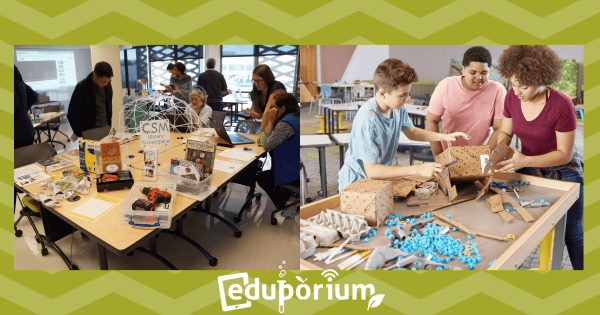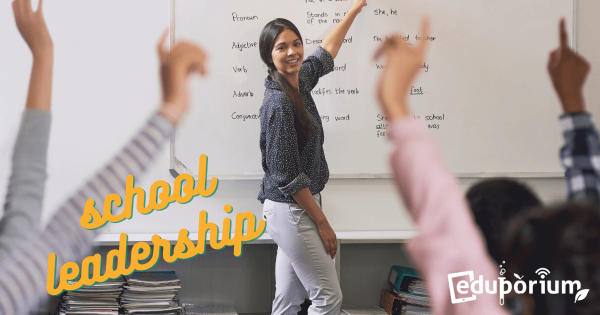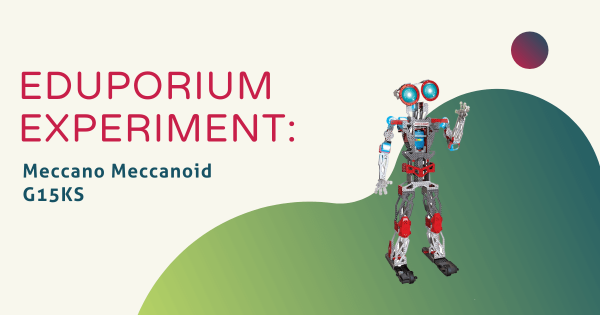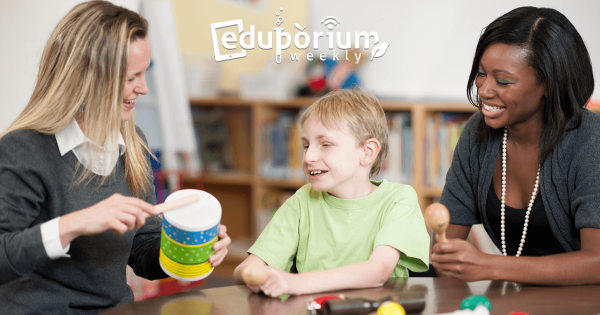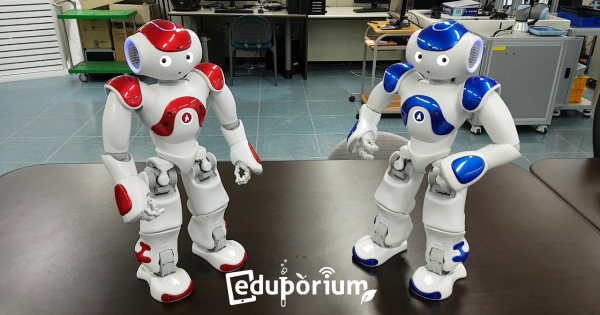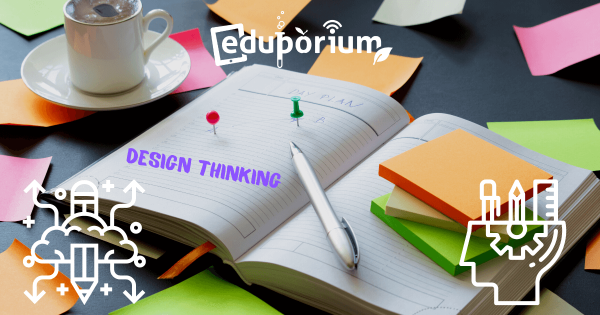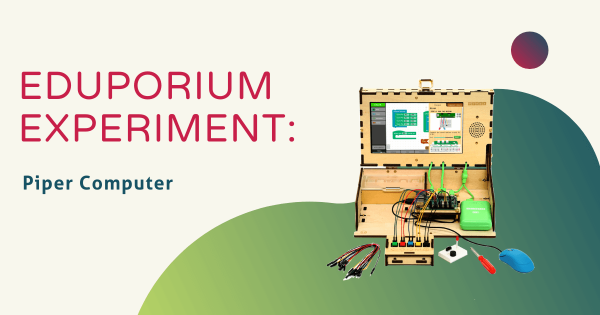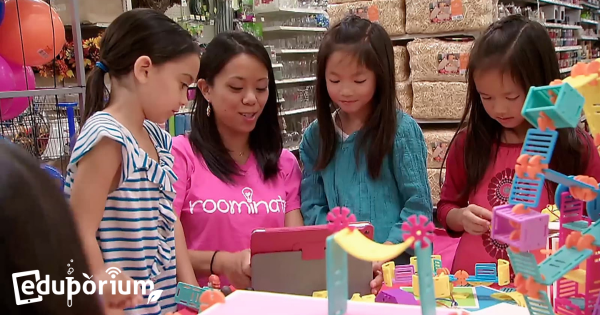These days, teachers and school leaders are doing a lot of repurposing of old tools and one of the biggest makeovers is occurring in school libraries. That’s not to say that school libraries have lost significance in 21st century education. They’re just starting to provide additional opportunities in STEM learning, specifically as makerspaces in schools.
Andy Larmand
-
Eduporium Weekly | School Leadership in the 21st Century
Teachers get a lot of credit for molding Future Ready students, but it’s oftentimes the administrators who work tirelessly to provide teachers with whatever they need to help students excel. The right leadership approach, style, and team can go a long way in creating an innovative school and has an invaluable effect on preparing children for the future. -
Eduporium Experiment | Meccano Meccanoid G15KS
It’s widely-accepted that robotics education is critical to building 21st century STEM skills because it combines so many essential disciplines depending on what each specific robot can do. I bring up my own history with robotics because it’s very relevant to this week’s post on the Meccano Meccanoid G15KS, one of the more complex STEM robots. -
Eduporium Weekly | Maximizing Special Education With EdTech
While we realize that there’s a lot of technology for helping kids of all ages learn, we might sometimes forget that there are also tools to help students who learn in different ways. When it comes to school children with learning differences, EdTech tools can help them learn in the same ways they help the average kid learn—grabbing their attention -
We Did Some Awesome Stuff At Eduporium Last Month
We began the month with a table and a constant crowd on Feb. 2 and 3 at Learn Launch’s annual Across Boundaries Conference held at the amazing Hynes Convention Center in Boston. A local organization, Learn Launch is dedicated to expanding Boston’s EdTech ecosystem by connecting many of today’s educators with innovative products and companies (like us)! -
Design Thinking as a New Kind of Pedagogy
In the 21st century, those who are most successful are always thinking at least one—sometimes two, three, or four steps ahead. Why? Because they have to. No longer can the most successful workers and students get by on basic skills. The times have changed and now essentially require them to have increasingly innovative skill sets just to survive. -
Eduporium Experiment | Piper Computer
The pi-top isn’t the only build-it-yourself computer on the market these days! As the Maker Movement snowballs in popularity, innovators are starting to wholly buy in to the idea that students need to learn not only in software skills, but hardware skills as well. This is where Piper, the wooden, kid-friendly, DIY laptop kit comes in and shines. -
10 Easy Ways For Students To Learn How To Code
According to Code.org statistics, about 90 percent of parents in the United States want their children to learn how to code. On the other hand, only 40 percent of students in K-12 schools are currently learning about computer science. Considering the huge demand for technically competent workers in today’s growing-by-the-minute IT sector, learning how to code is key. -
Eduporium Weekly | The Growing Importance Of Digital Literacy
For decades, literacy has been considered the absolute most fundamental skill any person could have. With the emergence of the automated era and the now complete commonality of technology tools, the necessary skill has changed from literacy to digital literacy. People need to know technology—how it works, what they can do with it, and how to maximize efficiency. -
Got A Girl Who's Loving STEM? What's New From Roominate
Designed to make engineering fun for girls, Roominate empowers them to control exploration by making them the architect, the engineer, or even the electrician! It’s a neat way to build Future Ready kids while they strengthen design and engineering skills by building cafés, cars, and even brand-new houses! And, we’ve got some new STEAM kits just for that!



